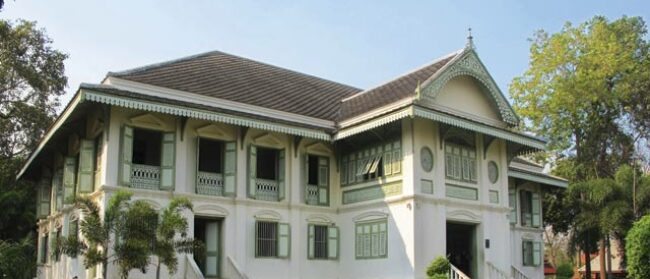Reggae music was the soundtrack as hundreds of Indonesian activists marched in the heart of Jakarta during last month’s Global Marijuana March, holding signs that read ‘Legalise it’ and chanting “Ganja bukan narkotika” – marijuana is not a narcotic.
Indonesia is known for its harsh drug laws. In 1971, it outlawed marijuana, classifying it as a class-one narcotic along with heroin and cocaine. If a person is caught carrying five or more grams of marijuana, they could face the death penalty.
Despite the government’s strict stance on drugs, the activists, ranging in age from 17 to 70, are undeterred in their efforts to legalise the iconic green plant.
“God created weed. Why would he create it if it is bad?” asked Cipta Budi, head of the Media Information Division at Lingkar Ganja Nusantara (LGN), or Circle of Marijuana Archipelago, the group spearheading the march.
In a nation obsessed with Facebook, it was only natural LGN started as a small group on the social networking site in 2008. With about 13 founding members, supporters of the movement began meeting offline, and today LGN is a formal organisation that has more than 17,600 ‘likes’ on Facebook.
Dhira Narayana, chairman and co-founder of the group, said the LGN also wants to legalise cannabis for industrial purposes, such as producing hemp rope as a source of income.
According to the 2009 law on narcotics, marijuana can only be used for research and scientific purposes, and not for medical reasons, said Sumirat Dwiyanto, the spokesman of the National Narcotics Agency (BNN).
This has not stopped Indonesians from trying the drug. The United Nations Office on Drugs and Crime (UNODC) Regional Centre for East Asia and the Pacific estimated that marijuana users totalled 2.8 million people, accounting for 65% of Indonesia’s total population of illicit drug users.
Cannabis first arrived in Indonesia at the end of the 19th century, when the Dutch brought cannabis plants from India. They introduced it into Aceh where it was planted between crops to act as a natural pest repellent.
Aceh’s climate was suitable for marijuana growth and today the area remains the main source of trafficked and seized marijuana in Indonesia, with Aceh cannabis accounting for 95-98% of seizures over the past four years.
The UNODC reports that Indonesia “is the source for the majority of seizures of cannabis herb”, and less than 1% of the world’s marijuana comes from outside the archipelago’s vast borders.
The city of Denpasar on the popular tourist island of Bali is one of the main cities targeted by hashish traffickers, and Indonesian drug cases have made global headlines in recent years. Indonesian authorities delivered Australian Schapelle Corby a 20-year jail term for smuggling a little over four kilograms of marijuana into Bali in 2004.
More recently, a 14-year-old Australian boy was arrested in Bali for buying 6.9 grams of marijuana in October last year.
A person found carrying marijuana could face at least four years in jail. “But this will depend on the judges’ decision after trial,” said Sumirat. “If he is found to be an addict, he will be sent to rehab. If he’s found to be a dealer, he may face a jail term.”
“We don’t want any drug users going to jail, we want them to go to treatment,” Cipta said.
Both Dhira and Cipta think the lack of awareness about marijuana in their country is fuelling stigma against ‘ganja’.
“We want to educate people about what marijuana is. Marijuana is not a drug, we see it as just a plant, cannabis. When we talk about marijuana we are talking about the plant not about drugs,” Dhira said.
With LGN’s recently released Hikayat Pohon Ganja (History of the Cannabis Tree) selling out quickly, a second printing has been issued.
“Indonesians know nothing about marijuana. All they know is that marijuana is a drug. It is the same as heroin, ecstasy, same dangers as these drugs,” Dhira said. “We are trying to say marijuana is natural, it fits to our body not like other things that are synthetic. It’s our job to change peoples’ perception of marijuana.”
When asked how meetings about legalisation have gone with government officials, both Dhira and Cipta laugh.
“The reaction is not good, at first,” Dhira said. “In Indonesia, legalisation is a new idea. When we talk legalisation, we mean the government should take the business of marijuana and regulate it. We don’t want criminal organisations to hold this illegal business. So the idea behind legalisation is we want the government to regulate, to take the business, the market of marijuana.”
The legalisation movement, however, has not gained as much ground in Indonesia as it has in other parts of the world.
Gary Lewis, UNODC regional representative for East Asia and the Pacific, says it is often unclear what people mean when they advocate for ‘legalisation’.
“The most common idea is to eliminate criminal profits by making drugs available to everyone without fear of legal sanction. This argument is flawed for two reasons,” Lewis said. “The first, is that illicit drugs are prohibited because of their health effects. The second is that organised criminal gangs involved in cannabis and drug trafficking make their money breaking the law, and will continue to do so whether drugs are freely available or not.”
Lewis argues that black markets for drugs are unlikely to disappear if drugs like cannabis are legalised.
Cipta, however, believes that marijuana will one day be legalised in Indonesia.
“It will take time. I am sure it will happen. It is just a matter of time,” he said. “I will never stop fighting.”


